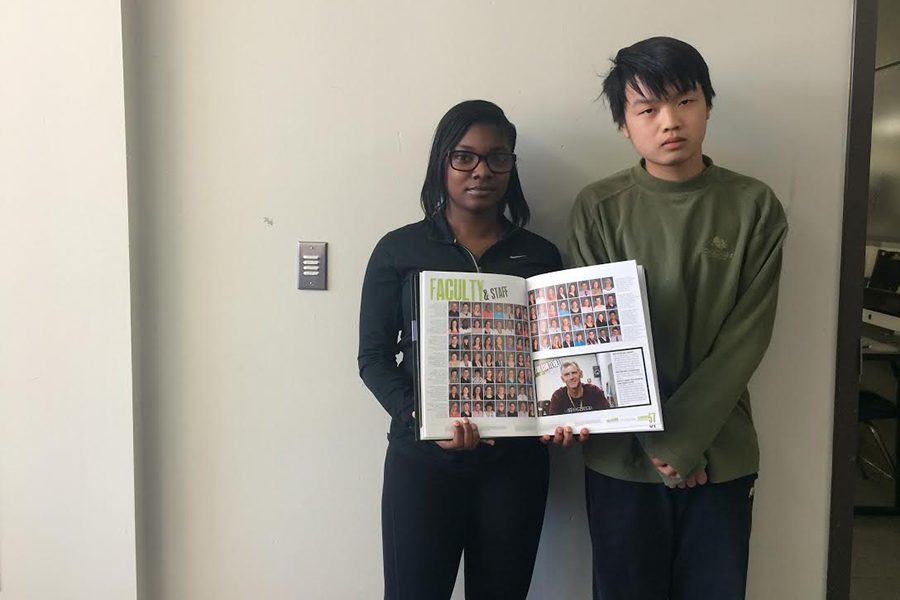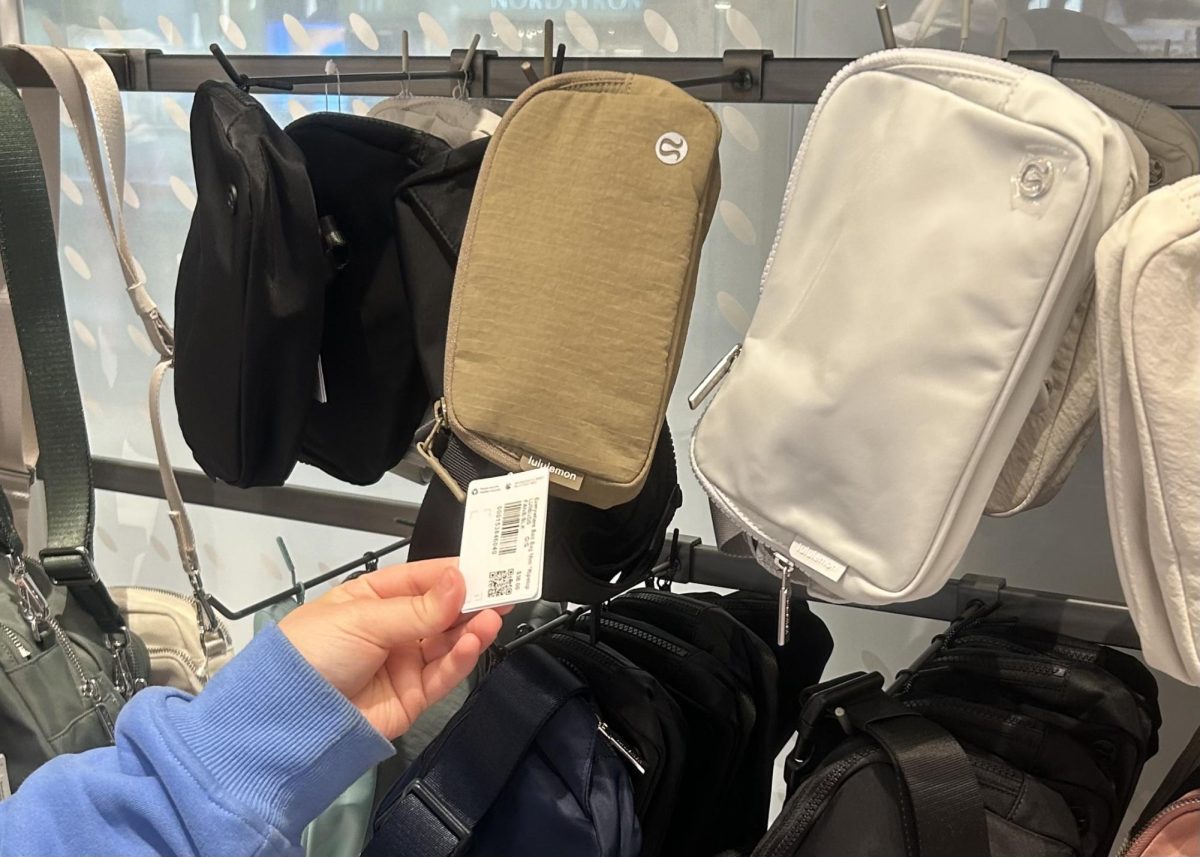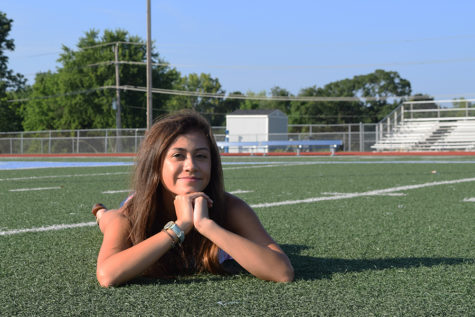Out of 166 certified teachers at West, six are of color.
“If we had teachers who taught honors or AP courses of different races we would have more African American students, more students of other backgrounds taking those classes,” football coach and Study Hall teacher Melvin Bethany said. “ You go out [the cafeteria] and look at all those flags, and there’s different backgrounds on every last flag that’s hanging there, but we don’t have that in our school except in foreign language class. In terms of the four course main subjects, we don’t have enough diversity there.”
Out of the three core teachers of color, two teach Honors/AP courses, but one will be retiring this year; this leaves West with one Honors/AP teacher of color in the entire building.
“It’s important for high-schoolers to have someone they can look up to in that are not necessarily in their household like a parent or an older sibling, and I have found solace in that I can look up to many of the great qualities that I see in my teachers whom I can relate to in someway. Usually I relate more to female teachers than male teachers because being a female we have probably gone through a lot of the same stuff in our lives,” senior Shannon Anderson said. “If we were to increase diversity among staff, especially teachers, and make it so that we have teachers who were a part of the LGBT community, or teachers of different races, then people who may be coming from those minority backgrounds will still have someone at this school that they can connect to.”
The school has been making an effort to promote religion, gender and racial inclusiveness in Common Ground, but many students feel this is rendered ineffective with an undiversified teaching staff.
“Having white teachers try to address race problems ends up being problematic. One of the best examples I can give is that Common Ground over Vivian’s Pledge and why racial, gender and ableness tolerance is so important to have. I noticed the words that were being used were very very carefully picked out, and one of the most prominent words I noticed was the word ‘tolerate.’ It’s problematic when somebody regards my race or my gender as something that is simply something to be tolerated, and not to be celebrated,” junior Bryan Zhang said. “The fact of the matter is no matter how much we try to study or how much we read, I will never know what it is like to be black, and my white teachers will never know what it is like to be a person of color…You can read Huck Finn and stories of how people of color have been oppressed over time, but you will never know what it’s really like. When I try to express something as a person of color, the messages always ends up being changed. The discussions we need is something that white teachers cannot provide for me, it’s something we need more diversity in the West staff for.”
The school also has three elective teachers of color—two of which are French teachers, meaning they interact with the same group of students all four years of their high-school career, and one of the two is here only every other day.
“Even though deep inside most everybody here is accepting of others…to someone from outside looking in, we don’t show it,” French teacher Nabila Harig said. “We need to give a model of an environment where students themselves get direct contact and communication with other races and backgrounds.”
Despite diversity among students, there are no counselors or principals of color.
“A lot of people who don’t want to talk about race use the term ‘race-baiting’ as if people of color want to talk about race or if people of oppressed gender want to talk about gender diversity or why it’s important to be gender inclusive,” Zhang said. “There’s a really good analogy I heard about doing the dishes. Recognizing equality is someone’s duty. Nobody wants to do the dishes, but when you realize the cockroaches crawling around the kitchen it’s just something you have to do. The same thing goes with issues of race and gender. I don’t always want to champion around the fact that I’m Asian American like some sort of tattoo on my skin, but when there’s cockroaches crawling around the kitchen and I’m constantly being oppressed because of what I am it’s something that I have to end up talking about.”



![Sophomore Maryem Hidic signs up for an academic lab through Infinite Campus, a grading and scheduling software. Some students enjoyed selecting their responsive schedule in a method that was used school-wide last year. “I think it's more inconvenient now, because I can't change [my classes] the day of, if I have a big test coming and I forget about it, I can't change [my class],” sophomore Alisha Singh said.](https://pwestpathfinder.com/wp-content/uploads/2025/10/DSC_0012-1200x801.jpg)
![Senior Dhiya Prasanna examines a bottle of Tylenol. Prasanna has observed data in science labs and in real life. “[I] advise the public not to just look or search for information that supports your argument, but search for information that doesn't support it,” Prasanna said.](https://pwestpathfinder.com/wp-content/uploads/2025/10/DSC_0073-2-1200x800.jpg)
![Junior Fiona Dye lifts weights in Strength and Conditioning. Now that the Trump administration has instituted policies such as AI deregulation, tariffs and university funding freezes, women may have to work twice as hard to get half as far. "[Trump] wants America to be more divided; he wants to inspire hatred in people,” feminist club member and junior Clara Lazarini said.](https://pwestpathfinder.com/wp-content/uploads/2025/05/Flag.png)
![As the Trump administration cracks down on immigration, it scapegoats many immigrants for the United States’ plights, precipitating a possible genocide. Sophomore Annabella Whiteley moved from the United Kingdom when she was eight. “It’s pretty scary because I’m on a visa. When my visa expires next year, I’m not sure what’s going to happen, especially with [immigration] policies up in the air, so it is a concern for my family,” Whiteley said.](https://pwestpathfinder.com/wp-content/uploads/2025/05/DSC_0077-7copy.jpg)
![Shifting global trade, President Donald Trump’s tariffs are raising concerns about economic stability for the U.S. and other countries alike. “[The tariffs are] going to pose a distinct challenge to the U.S. economy and a challenge to the global economy on the whole because it's going to greatly upset who trades with who and where resources and products are going to come from,” social studies teacher Melvin Trotier said.](https://pwestpathfinder.com/wp-content/uploads/2025/05/MDB_3456-1200x800.jpg)



![Some of the most deadly instances of gun violence have occurred in schools, communities and other ‘safe spaces’ for students. These uncontrolled settings give way to the need for gun regulation, including background and mental health checks. “Gun control comes about with more laws, but there are a lot of guns out there that people could obtain illegally. What is a solution that would get the illegal guns off the street? We have yet to find [one],” social studies teacher Nancy Sachtlaben said.](https://pwestpathfinder.com/wp-content/uploads/2025/01/DSC_5122-1200x800.jpg)

